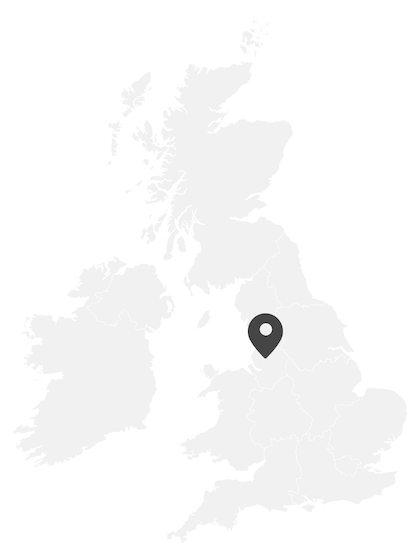Nursing in Wigan: Studying, working and living guide
Find out about nursing in Wigan - where nurses can find jobs, the hospitals they might work in, colleges & universities to study in, plus living information.

Wigan is a town in Greater Manchester, situated on the River Douglas between Manchester and Liverpool.
Historically Wigan was a mill town and coal mining area, with a rich industrial heritage. It’s very well located and within close distance of many major cities in the north of England.
Today, it’s a friendly, bustling town that’s popular among students and professionals.
And this guide, whether you’re an existing or aspiring Nurse, offers an idea of what it’s like to live there – from where to live and school options to costs and amenities.
Where do Nurses work in Wigan?
Wigan has a number of employers from within the NHS and the private sectors.
Four of the biggest include:

Royal Albert Edward Infirmary

Wrightington Hospital - Orthopaedic Surgery and Rheumatology

Leigh Infirmary – Elderly medicine and outpatients

Thomas Linacre Outpatient Centre
There are also a number of care homes and community health settings that employ qualified nurses.
At any one time there are hundreds of nursing vacancies in Wigan, and even more in close proximity to the town.

Where do aspiring Nurses study in Wigan?
For anyone wanting to become a Nurse in Wigan, you can train and study at University Centre Wigan and Leigh College – a university-level education provider.
The University Centre Wigan and Leigh College have four centres located across Wigan and Leigh. Start dates are available in September. This is the only University in Wigan.
Students from Wigan can also study at the University of Manchester which is only 40 minutes by car or train from Wigan. Start dates are also typically offered in September.
Find our nursing university guide here.
According to Zoopla, while the average monthly rental costs for students in Wigan has risen sharply in recent years, it remains one of the cheaper locations to study in the north, and far cheaper than the south east of the UK.
Where do Nurses live in Wigan?
Popular locations for Nurses and students to live in Wigan include:
Wigan Town centre.
Always popular because of excellent amenities on your doorstep.
Appley Bridge.
An affluent, small village that’s just 15 minutes from the town centre and popular among students and families.
Standish.
A small, nearby town which is popular with families because of excellent schools and a strong community feel.
Swingle.
A suburb of Wigan with excellent amenities – and also a 10-minute walk to The University Centre Wigan and Leigh College.

What are the living costs for Nurses in Wigan?
Here is a broad guide to some of the different costs of living in Wigan.

The average price for a home in Wigan is currently £183,000 which is far lower than the national average of £293,000.

The average rental price for a property in Wigan is £800 per month. But if you are merely looking to rent a room in a shared house, the average cost is just over £500 per a month.

Council tax costs vary a lot across the city. But many people in Wigan are in a Band B property or similar, which currently means paying £1,353 per a year – or just under £115 a month.

Utility bills are slightly cheaper in this area but similar to the rest of the UK. However, when it comes to eating out and entertainment, you’ll find that Wigan is very affordable.
Is travel easy in Wigan?
Wigan offers excellent transport links to the rest of the UK and beyond.
By road, the local A577 provides good links to the M6 linking the Midlands all the way to Scotland. You can reach Manchester in a little over thirty minutes while London is within a four-hour drive.
The closest airports are Manchester Airport and Liverpool Airport, both a little over 30 minutes away and each providing direct links to over 100 destinations including major cities both domestically and internationally.
Wigan has two rail stations offering an express two-and-a-half-hour service to London and similar fast links to Birmingham, Glasgow and Edinburgh. Liverpool and Manchester are also easily commutable by train.

What to do in Wigan: walks, culture, nightlife and eating out
Wigan has lots of lovely places to visit during your free time.
Culture and attractions
There are also many interesting museums and galleries to visit including Turnpike Gallery, Museum of Wigan Life and nearby Lancashire Mining Museum.
Music and theatre venues such as The Old Courts, Wigan Little Theatre, The Boulevard (underground music venue) and The Edge Arena also have you well covered.
As for green spaces, Haigh Woodland Park, Orrell Water Park and Pennington Flash Country Park are stunning places for walking, peace and quiet or spotting wildlife.
If you're into sport, Super League based Wigan Warriors are the most successful rugby league club in history and play their matches at the impressive DW Stadium alongside Championship football side Wigan Athletic FC.
Nearby Leigh Leopards, who also play in rugby’s Super League, are based at Leigh Sports Village – which is also the home of Manchester United Women FC.
Nightlife and eating out
Wigan is very well served when it comes to nightlife and eating out.
Highlights include:
Albert’s Standish. A family run restaurant since 2004 known for its family friendly British food.
Bag and Bean. Known for its selection of handmade breakfast and lunch treats as well as its coffees and milkshakes.
The Black Pepper. Wigan’s number one rated restaurant on TripAdvisor.
Curiosity Liquor Emporium. Popular for cocktails, chilled atmosphere during the week and live music at the weekend.
And this barely scratches the surface.
What are the school options in Wigan?
Wigan boasts a solid mix of school options if you’re relocating your family.
There are 110 primary schools, 35 secondary schools and 3 independent private schools in the area.
The overall quality of the schools is very good, with a high proportion of Ofsted outstanding schools.
Schools are also very well spread throughout the area, meaning you’re likely to be able to walk.
Population and demographics in Wigan
Here are some of the main population and demographic facts in Wigan:
The population of Wigan town is 108,000.
The population density is 1,750 people per square mile – which is relatively low.
Wigan residents, historically, are jokingly referred to as pie-eaters because their miners were the first to return to work after the 1926 General Strike – and had to eat ‘humble pie’.
There are marginally more females (51%) than males in Wigan.
3.7% of Wigan population is unemployed – lower than the UK average.

In summary: is Wigan a good place to be a Nurse?
It’s hard not to like Wigan.
It’s friendly, with a well-known community spirit. It’s busy, with lots going on, but is also surrounded by green space and beautiful scenery.
It’s well located, offers lots of job opportunities, and works whether you’re a student or a professional
But best of all, with an average nursing salary of £38,600 a year and comparatively affordable housing costs, your money will go further here.
Here are a couple of examples:
As a newly qualified Nurse on an NHS Band 5 salary, if you rented a room in a shared house, after typical bills and expenses you’re still likely to have the best part of £1000 left of your income each month – considerably more than in much for the UK.
As a Band 6 Nurse, you could likely afford a mortgage to buy a flat alone – again, something that is very unlikely in the rest of the UK.
So, it’s a thumbs up from us. Wigan is a great place to relocate.




